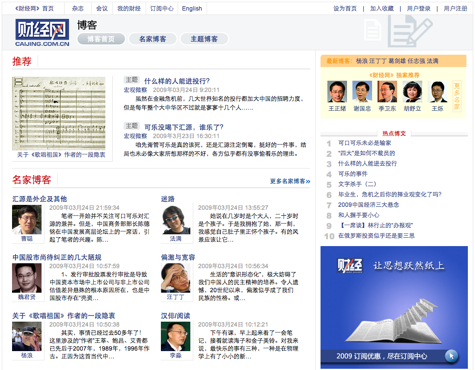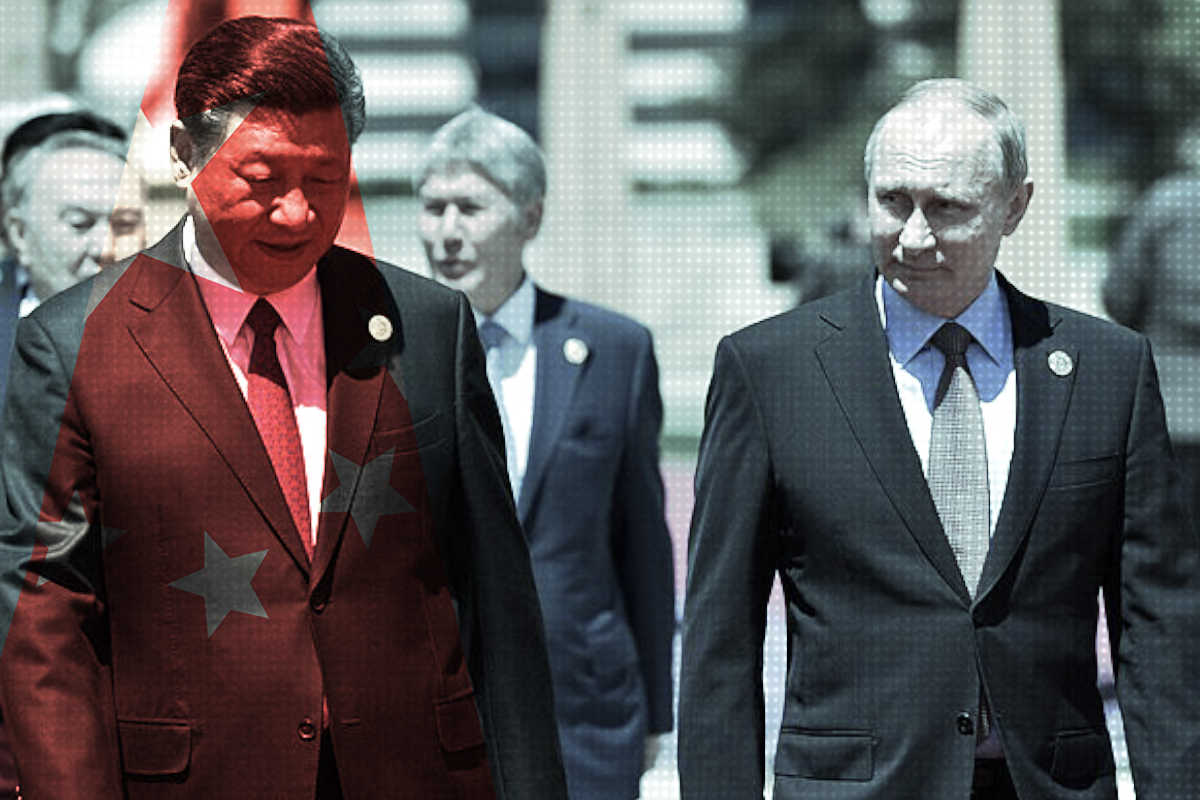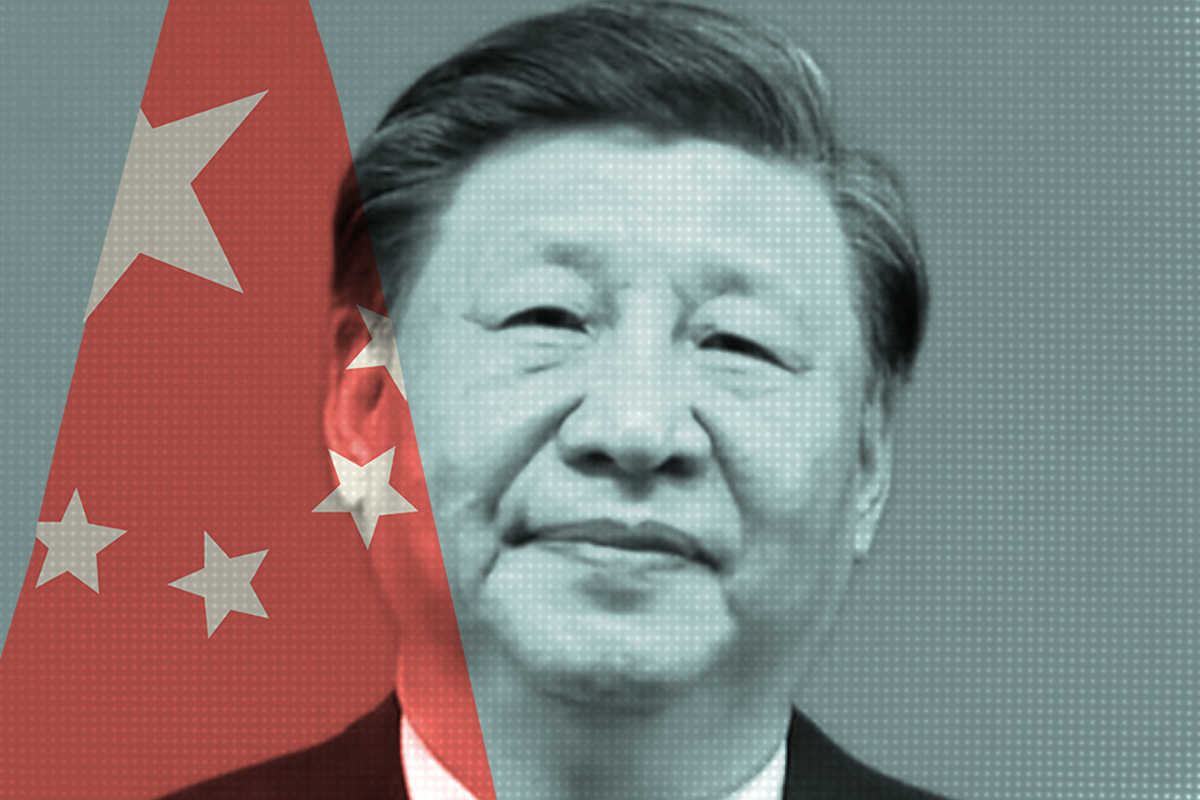By David Bandurski — For those who have not discovered it yet, China’s leading business and finance magazine, Caijing, has now launched its own online blog section at Caijing Online. Contributors, including Caijing‘s founder and editor-in-chief, Hu Shuli (胡舒立), also a former CMP fellow, write on a range of topics, including business, politics, current affairs and media.

For just a taste, we translated Hu’s March 25 blog entry, in which she muses about the confusion that ensued at Caijing‘s Washington, D.C.-based finance forum earlier this year, when one audience member asked the panelists how they would suggest translating Hu Jintao’s newest CCP buzzword, “bu zheteng” (不折腾).
It was just after the new year at 1775 Massachussets Avenue in Washington, D.C., the home of the Brookings Institution. For the second year in a row, Caijing magazine was holding the “overseas portion” of its annual conference on “Strategies and Forecasts” at this location, and the main auditorium and two video-conferencing venues were full to capacity.
Later in the afternoon, the conference began its last panel discussion and exchanges were lively between speakers and members of the audience. Suddenly, one audience member asked a question of Chinese economist Xu Xiaonian (许小年), who was onstage as a panelist: “You were just talking about deepening reforms and loosening controls. China observers have noted that Party Chairman Hu Jintao has recently used the term “bu zheteng” (不折腾) in official speeches, and I’d like to know — the concept behind this word is at once very simple and very complicated, so how should we translate it?”
From what I know, it was on December 18, 2008, as Hu Jintao spoke to mark the 30th anniversary of economic reforms [in China] that he used for the first time the phrase, “don’t shake (动摇), don’t slacken (懈怠) and don’t zheteng” (折腾) [NOTE: The full phrase is “不动摇、不懈怠、不折腾”]. And from that time on how to translate the phrase “to not zheteng” became a point of difficulty among experts. Many translations of this term have so far come out among everyone from journalists to Chinese officials, including “don’t make trouble, “don’t do something that will finally prove useless,” “don’t do something that only wastes time,” and even “don’t flip flop,” “don’t get sidetracked,” “don’t sway back and forth” or “no dithering.” There is also the more down-to-earth version “no major changes.” But there has so far been no translation everyone is satisfied with. At a State Council Information Office press briefing on December 30, not long after the term first emerged, a use of the term by [Information Office director] Wang Chen (王晨) was rendered simply [in pinyin] as “buzheteng.”
Xu Xiaonian of course was familiar with all of this background. Thereupon, this man with top-notch translation experience, an American resident PhD economist, responded quite frankly: “I don’t know. I really don’t know.”
Global finance expert Wang Jun (王君), who was also on Xu’s panel, then chimed in, saying he had heard [China’s deputy finance minister] Jin Liqun (金立群), [who was also present in Washington], talking about this same problem. “Would Mr. Jin care to offer his thoughts?” he suggested.
“That’s right, we have a linguist in our midst,” Xu Xiaonian mused.
China Investment Corporation chairman Jin Liqun had already spoken as a guest earlier that afternoon, and he was sitting on the second row in the audience listening in on this session. Amid a peal of applause, the 59 year-old Jin Liqun stood up and shared his own knowledge. A translation of his remarks follows:
“We’ve not yet seen the final version in translation from our officials. The principal point in undertaking translation is to seek out a word that accords with the original meaning, but this is an impossible mission. Therefore, I won’t attempt this myself. As to this “bu zheteng” I think we must not seek out a particular cognate, but must instead work hard to understand history, the history following the establishment of the People’s Republic of China. For example, from the Great Leap Forward to the Cultural Revolution . . .
That is to say, you wish to accomplish something, and you believe it is something monumental, but the result is utter chaos, so then you decide you want to do something else [monumental that ends in disaster]. This history shows that our nation has been through “zhe teng” many times.
(Laughter rolled through the audience.)
So, “zhe teng” is something that cannot be translated into English, just as there are English words that are difficult to translate into Chinese. I think that certain words and expressions within a language, slang in particular, are difficult to translate. The best thing, therefore, is to bring these words directly into English. The English language has accommodated various foreign vocabularies, such as French and German.
So, why go and trouble yourself over a translation? There is no need. Don’t.
(Laughter.)
I feel the only thing I can do is convey this sense, but it is still not enough. Moreover, some people have suggested that Shakespeare has already provided an appropriate expression: “much ado about nothing” (in Chinese translated wushishengfei, 无事生非). There is some reason in this. “Much ado about nothing” is also an acceptable translation, giving us some of the sense. But I still feel it’s not adequate enough. Why? Because “zhe teng” is a verb in Chinese, an intransitive verb, while “much ado about nothing” is a noun phrase and so can’t be used quite in this way.
And so, my answer to the question of translation, still inadequate, is to first propose that the word be directly introduced into English as “buzheteng.” If you insist upon a translation, then I think the closest phrase is “don’t rock the boat,” or “no boat rocking” (in Chinese rendered directly bu huangchuan, 别晃船). Because we are all having a good time and then somebody is starting to rock the boat. So, “buzheteng” is do not rock the boat.
Thank you, everyone.
(Laughter and applause.)
Frankly speaking, Jin Liqun is an English expert, and my own translation [of the exchange at the conference] is possibly insufficient. I’ll only offer my apologies right here, then, and return to the original [English] at the end. An english transcript of this year’s conference is already available at the conference channel on Caijing Online, so those who are interested can go and see for themselves.
[Posted by David Bandurski, March 27, 2009, 8:21am HK]




















